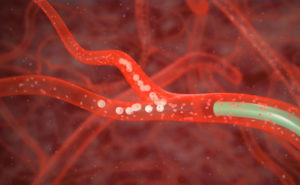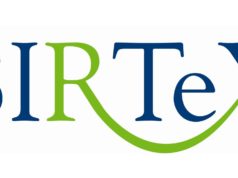
SIRveNIB is an investigator-led Asia Pacific Primary Liver Cancer Study to be presented on 4 June 2017 at the American Society of Clinical Oncology (ASCO) annual meeting in Chicago, USA.
The abstract, published online in the Journal of Clinical Oncology, states that the overall survival of patients with locally advanced hepatocellular carcinoma who undergo a single treatment of SIR-Spheres yttrium-90 (Y-90) resin microspheres does not significantly differ from the overall survival of patients who recieve twice-daily oral sorafenib. Selective internal radiation therapy (SIRT) results in significantly better tumour response and fewer and less severe adverse events.
SIRveNIB was designed to compare the efficacy and safety of SIRT with Y-90 resin microspheres (SIR-Spheres; Sirtex) vs. sorafenib (Nexavar; Bayer HealthCare), a systemic treatment that is the current standard of care in advanced hepatocellular carcinoma. The patients in SIRveNIB were ineligible for potentially curative therapies, such as surgical resection, ablation or liver transplantation.
The study was conducted by The Asia-Pacific Hepatocellular Carcinoma Trials Group (AHCC) in collaboration with the National Cancer Centre Singapore (NCCS) and Singapore Clinical Research Institute (SCRI) and supported by the National Medical Council Singapore and Sirtex.
The lead author of the SIRveNIB abstract, Pierce Chow, senior consultant surgeon at the National Cancer Centre Singapore and the Singapore General Hospital said: “Asia Pacific patients with locally advanced primary liver cancer with no spread outside the liver who are treated with Y-90 resin microspheres have a significantly better tumour response rate (TRR) compared to sorafenib, despite 28.6% (n=52) of patients not receiving Y-90 therapy as planned (TRR – 16.5% for Y-90 resin microspheres vs. 1.7% for sorafenib, respectively; p<0.001). Moreover, patients experienced fewer, less serious adverse events when compared with those treated with sorafenib. There were no statistically significant differences in the primary endpoint of overall survival between the two treatments.”
Although the median overall survival in the intent-to-treat group was 8.54 months for Y-90 resin microspheres vs. 10.58 months for sorafenib, respectively (p=0.203), there was a trend in improvement in median overall survival in the treated group for Y-90 resin microspheres (11.27 vs. 10.41 months, p=0.273). While Y-90 resin microspheres were not superior to sorafenib regarding overall survival, Chow, who is also professor and course director at the Duke-NUS Medical School, indicated that “the better tumour response and tolerability of Y-90 resin microspheres offers a compelling treatment alternative for patients with advanced hepatocellular carcinoma, for whom there are limited treatment options available.”
Soo Khee Chee, director of NCCS added: “Each year we are making good progress in treating liver cancer. The deeper we go in our research, the better we are able to understand how the cancer behaves and we are able to widen the treatments options for our patients. The results reinforced our belief that with the right people on the research project, we can get the best results. I am grateful to our partners for collaborating in this study.”













